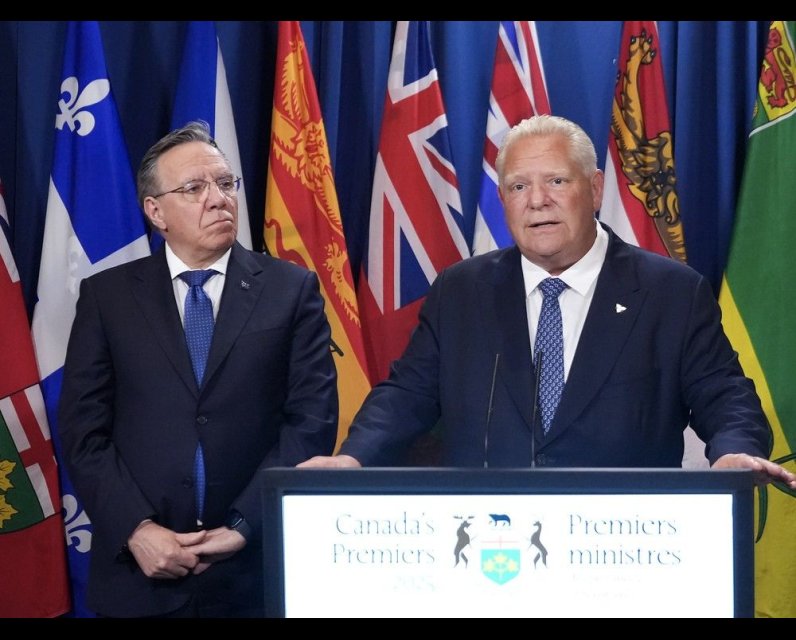Ottawa and the provinces prepare to battle in constitutional combat over notwithstanding clause

OTTAWA — With a short, 20-odd page Supreme Court submission on Wednesday, the federal government struck a match and threw it onto a pile of Constitutional gasoline that was growing for years and primed to blow.
In its first legal intervention in the challenge of Quebec’s controversial secularism law (also known as Bill 21), the federal government told the country’s top court that there should be limits on the use of the most hotly debated section of the Charter of Rights: section 33, or the notwithstanding clause.
The clause allows a government to override specific Charter rights for up to five years, at which point the use of the power must be reviewed.
“This case is about more than the immediate issues before the Court. The Supreme Court’s decision will shape how both federal and provincial governments may use the notwithstanding clause for years to come,” federal Justice Minister Sean Fraser said in a statement Thursday.
Ottawa’s argument raised the ire of the provinces, many of which say that the courts have no business limiting how and when they invoke the notwithstanding clause.
Quebec Premier François Legault called the federal government “hypocritical,” while his justice minister accused Ottawa of a frontal assault against provincial legislatures.
Alberta Premier Danielle Smith said she was “extremely disappointed” that the federal government would “risk national unity” and attack a “foundational principle of our constitution.”
“(We) request they withdraw their appeal to the Supreme Court immediately,” she wrote on social media .
Ontario’s Attorney General Doug Downey and Saskatchewan Premier Scott Moe said Ottawa’s arguments were an attempt to rewrite the Charter through the courts.
While the case may appear to be about how much legislators are allowed to suspend certain Charter rights via section 33, in reality the fight is about how much power courts should have to limit or review the use of the notwithstanding clause.
It comes at a time when a growing number of provinces, such as Ontario and Alberta, are taking inspiration from Quebec and pre-emptively invoking the notwithstanding clause in controversial legislation they suspect could violate certain Charter rights.
Quebec invoked it in Bill 21 which prohibits certain public sector workers, such as judges, police officers, teachers and prison guards, from wearing religious symbols at work and requires them to perform their duties with their faces uncovered.
The province invoked the notwithstanding clause pre-emptively to shield the law from the courts. Every five years, this provision must be renewed by Quebec’s legislature. It was renewed last year.
Ontario Premier Doug Ford has invoked it twice since 2018, most recently in 2022 in back-to-work legislation targeting striking teachers that was quickly pulled back after massive union backlash.
The Alberta government appears poised to invoke the clause in three upcoming bills affecting transgender people, according to The Canadian Press .
A question posed loudly by many legal analysts since Ottawa’s submissions: can the Supreme Court resist the federal government’s offer to give courts more power to interpret, and possibly limit, the notwithstanding clause?
Supporters of the challenge against Bill 21 — and the general pre-emptive invocation of section 33 — say that the use of section 33 has gone well beyond that of a “ safety valve to be used only on rare occasions ” and on “non-controversial issues.”
A key argument by the federal government is the view that legislators should not be able to consistently renew a law curbing some Charter rights to the point where those rights are shrivelled “beyond recognition” and become “mere legal fictions.”
The government’s factum illustrates it with a lightbulb analogy: turn off a lightbulb (or a Charter right) for a short time (in this case, five years) and it will likely shine as brightly when you turn it back on. Turn the bulb off for a long time (such as repeated five-year periods) and it may never turn back on.
Ottawa also argued that courts should still have the power to decide if a law violates Charter rights even if it includes the notwithstanding clause. The court, even if it cannot strike the law down, serves to inform citizens and legislators about the impact of legislation, it argued.
In its opposing factum, the Quebec government cites a 2005 Supreme Court decision in arguing that “only electors can debate the wisdom and value of legislative decisions.”
The province also told the court that section 33 is a “cornerstone” of the Charter because provinces viewed it as a guarantee that Parliaments maintained legislative supremacy over courts. Without it, the Charter of Rights never would have seen the day, and so provinces must be free to use it, it added.
“Nothing prevents provinces from legislating to protect public interests such as morality or fundamental social values,” reads Quebec’s factum.
Similarly, Manitoba’s government argued to the Court this week that “providing democratically elected representatives with the final say on certain rights and freedoms via the notwithstanding clause was viewed as essential to the legitimacy of entrenching Charter rights and the judicial review of legislation.”
But Manitoba agreed with the federal government that courts should still be able to decide if laws invoking the notwithstanding clause violate Charter rights suspended by section 33.
To say that the case has attracted widespread attention is an understatement. This summer, the Supreme Court approved a record number of interveners in the case. The highly-anticipated hearings have not yet been scheduled.
This week, many pundits raised the spectre of a constitutional crisis if the Supreme Court sides with the federal government’s view. If the top court decides to limit section 33’s applications, will provinces abide by the decision? If not, then what?
National Post
cnardi@postmedia.com
Our website is the place for the latest breaking news, exclusive scoops, longreads and provocative commentary. Please bookmark nationalpost.com and sign up for our politics newsletter, First Reading, here.

Comments
Be the first to comment